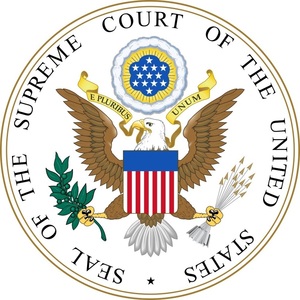Supreme Court schedules arguments in SRE review for April 27

March 12, 2021
BY Erin Krueger
The U.S. Supreme Court on March 12 announced it will hear oral arguments on April 27 pertaining to its pending review of the Tenth Circuit Court of Appeal’s January 2020 ruling on small refinery exemptions (SREs).
The Tenth Circuit Court of Appeals on Jan. 24, 2020, issued a ruling that struck down three SREs that the court said were improperly issued by the EPA and held that the agency cannot “extend” exemptions to any small refineries whose earlier, temporary exemptions had lapsed.
Advertisement
The ruling stemmed from a May 2018 challenge brought against the EPA by Renewable Fuels Association, the National Corn Growers Association, the American Coalition for Ethanol and the National Farmers Union.
The court’s decision was challenged by affiliates of Wynnewood Refining and HollyFrontier. The refiners in March 2020 requested a rehearing en banc of the Jan. 24 ruling. Those petitions were rejected by the court in April 2020.
Advertisement
The two refining companies escalated their challenge over the court ruling in September 2020 when they filed a petition for a writ of certiorari with the Supreme Court. The U.S. Department of Justice filed documents with the court in December recommending against Supreme Court review of the Tenth Circuit Court’s ruling. Despite that recommendation, however, the Supreme Court on Jan. 8 granted the petition for review filed by Wynnewood and HollyFrontier. The U.S. EPA has since spoken out to announce it has changed its position and now supports the Tenth Circuit Court’s ruling.
Additional information is available on the Supreme Court website.
Related Stories
The U.S. EPA on July 8 hosted virtual public hearing to gather input on the agency’s recently released proposed rule to set 2026 and 2027 RFS RVOs. Members of the biofuel industry were among those to offer testimony during the event.
The USDA’s Risk Management Agency is implementing multiple changes to the Camelina pilot insurance program for the 2026 and succeeding crop years. The changes will expand coverage options and provide greater flexibility for producers.
EcoCeres Inc. has signed a multi-year agreement to supply British Airways with sustainable aviation fuel (SAF). The fuel will be produced from 100% waste-based biomass feedstock, such as used cooking oil (UCO).
President Trump on July 4 signed the “One Big Beautiful Bill Act.” The legislation extends and updates the 45Z credit and revives a tax credit benefiting small biodiesel producers but repeals several other bioenergy-related tax incentives.
CARB on June 27 announced amendments to the state’s LCFS regulations will take effect beginning on July 1. The amended regulations were approved by the agency in November 2024, but implementation was delayed due to regulatory clarity issues.
Upcoming Events










